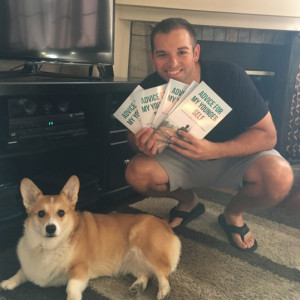How do you manage having too much or not enough work?
Interview with Chanell, a freelance writer and social media manager
I want to preface this by saying this is an excellent problem to have, but I have always had to manage having too much work. In the past, it was intense, so I took a step back to see what I could do to keep my schedule from spiraling out of control. I chose to establish these standards:
- No same-day assignments as I like to take time for editing and proofreading.
- If I receive a job after 12 pm, I will work on it the following day.
- All work and correspondence will be completed no later than 5:00 pm.
I also had to scale back with one of my clients that request long-form articles. Instead of doing two, I reduced it to one for better work-life balance. These standards have surely been a saving grace in balancing time.
Chanell is a freelance writer working from Atlanta that writes about business management tips and video game entertainment threads.
Read full interview from Interview with Chanell, a freelance writer and social media manager.
Interview with Laurel about helping companies transition to remote work
If a marathon runner neglects to set an appropriate pace based on their level of expertise, they won't know how fast or slow they should be running in order to achieve their goal.
Likewise, if a worker doesn't measure, track, and control their workload, they are likely to be working too much or too little during their office hours.
I personally find it extremely helpful to keep a gantt chart of all of my projects so that I can easily measure and distribute my bandwidth.
Then, each of those projects are broken into benchmark goals that I incorporate into my daily to do lists (that I write a week at a time).
Laurel is an advocate for remote work and helps companies learn how to work remotely through her consulting and writing.
Read full interview from Interview with Laurel about helping companies transition to remote work.
Interview with Dane, a freelance writer and author with 7 published books
When I have too much work, I put in extra hours, and when I have too little work, I just spend more time working on my books and my writing. I generally find that I have too much work around 20% of the time, just the right amount 65% of the time and not enough work 15% of the time, so it actually works out quite well.
I also vary how much time I spend pitching for work, so if I know I’m going to be busy for the next few weeks then I won’t pitch for new jobs until that work is coming to a close. But there’s usually a window of maybe a couple of weeks between when I pitch for something and when I’m awarded it, so it can be a bit of a challenge to get it right. A lot of it is just trial and error.
Dane is a freelance writer and author who works remotely, and balances client work with writing his own books.
Read full interview from Interview with Dane, a freelance writer and author with 7 published books.
Interview with Chloe, a customer support freelancer and multi-project expert
When I do not have enough work, the key is to be aggressive. Apply, apply, apply. Also, give your potential employer a realistic estimate of the time and hours you have to dedicate to a project.
As remote workers, it is imperative that we deliver on what we say we are going to.
When I have my plate full, the key is being organized. I color code, take notes and have separate binders for each project, so the information is easily accessible.
Chloe uses the flexibility of freelancing to her advantage—see how she successfully manages multiple projects at one time.
Read full interview from Interview with Chloe, a customer support freelancer and multi-project expert.
Interview with Andrew, a freelance writer who works remotely
The too much work problem is always a great problem to have. Generally, I handle a high workload by one of two different ways.
The first is that I price my way out of additional obligations. Most of my workloads come from clients who are sending me a steady stream of jobs, so if I find myself with just too much on my plate, I will increase my prices, as a way to reduce the amount of work coming my way. It usually doesn’t cut off my client, but it does slow down how much they send me, giving me time to catch up on my workload.
The second way that I handle a high workload is by buckling down hard and knocking out projects aggressively. I usually do this by increasing my hours spend working on a job. I normally average between four to six hours a day working on my writing, but when it’s crunch time I can usually push between 10 to 12.
It’s not ideal, of course, so I try my best to prevent having to have these crunch days by learning to say no to new work when I have a large pile of stuff to do. It’s not easy passing on certain jobs, but it’s necessary. You can’t chase two things at once, or else you run the risk of losing them both.
As for having a scarcity of work, that’s definitely one of the bigger challenges that comes with this line of work.
I’ve had a few occasions where suddenly the pipeline has dried up, and let me tell you, it’s never a pleasant thing to finish a contract and realize there’s nothing left.
Usually when that happens, I start aggressively looking for new clients. Fortunately, with a higher level of ratings and a large track record on Upwork, I don’t have much trouble finding work. It’s usually just a matter of time before I get more work coming my way.
Although, in the past I learned a valuable lesson, unless you have a gig that is designed to give you more work, don’t assume that a client will keep their word when they say they’ll “work with you again.” I’ve had far too many clients tell me that they’ll send me another job soon, never to hear from them again.
A great way to prevent suddenly running out of work is to always be applying for gigs that you find interesting. Let’s say you’ve got a few jobs that will take care of you for a month. During that month, while working those jobs, you should be putting our applications for other gigs, but since you aren’t desperate for the work, you can be a little choosier and even increase your price point. Negotiation is hard when you know you absolutely need the job, so by negotiating when you don’t need it, you’ll be a lot more comfortable asking for higher prices.
Andrew became a full-time freelance writer after experimenting with freelance marketplaces. After the first month, he was already earning more than his full-time job.
Read full interview from Interview with Andrew, a freelance writer who works remotely.
Interview with Michael about being an entrepreneur and freelancer
After attending a Mastermind and working with a business coach I realized I was always placing my clients work first (as it was instant money) and sacrificing my long-term goals.
Now I spend 3 days on my stuff (Tuesday/Thursday/Saturday) and 3 days on clients (Monday/Wednesday/Friday).
At the beginning of my entrepreneurial journey, all I had was my site and spent 100% effort on it. I learned monetizing a blog can take time so I started freelancing. Soon I was spending 80-90% on clients and barely any on my own. Now my themed days make it much more equal.
Michael is an online entrepreneur, author, and freelance writer who specializes in self-improvement and personal finance.
Read full interview from Interview with Michael about being an entrepreneur and freelancer.
Interview with Vernon, a freelance technical writer
Too much work is still a rare occurrence, but that's becoming less and less the case as time goes on and business improves.
When multiple clients require their deliverables within a tight time frame, then it's all hands on deck. Planning is key. Like I said before, keeping a list of all tasks required is an absolute must, but when things get hectic, you need to plan beyond just the work itself.
You need to make sure that any social obligations are cleared for the foreseeable future, to make yourself as inaccessible as possible (no social media, no messaging apps, turn off your phone if needs be) and to ensure that you have a concrete plan of exactly what you need to do and how you're going to do it, and then impose the necessary deadlines on yourself.
Now, as for times when there is less-than-enough work, I have two things to say about that. Firstly, not having enough work is something that all freelancers should aim to minimise, obviously.
In my experience the only way to do this is to make looking for new jobs a part of your daily routine. It should be like exercising or making your bed or brushing your teeth.
Do it daily, making it a regular habit. Maintaining your marketing efforts (which is basically what it is) is good practice for your business. It is always better to have too many offers than not enough.
Having said that, knowing something is good practice and making it a practice are two different things. I sometimes drop the ball on marketing, and I have paid for it with lean times, times when all existing assignments have been completed, and there are no pending assignments on the observable horizon.
But this leads to my second point. Slow times are not always a bad thing, as long as you utilize them properly.
During lulls in my workflow I focus on expanding my skill set.
Education does not stop after college/university. You should always be learning. No one knows everything. There is always something you don't know, some skill you don't have.
When I have free time I try to utilise it by learning things that can enhance my career, be it directly (like learning how to use software particular to technical writing, like Adobe FrameMaker) or indirectly (such as learning how to better market myself and my services).
Of course, life is not uni-dimensional; there are other things besides work and career, so lulls in the workload can sometimes be opportunities to handle other aspects in one's life.
I recently went through a lengthy family emergency and, while I did have a substantial amount of work on my plate at the time, I had to make the time to handle it.
Fortunately, I had clients that sympathized with my situation and allowed me the space to deal with it. So, in that way, not having enough work can sometimes be a blessing. Sometimes it's just a matter of perspective.
Now, a light workload also results in a lack of income, naturally, and for some freelancers this can be a serious problem. In my case, I've set up a “cushion” that eases me during these hard times.
Now, while these times are never comfortable (rather anxiety-inducing actually), I can survive a few weeks without any additional money coming in.
In fact, anyone who decides to start a new business or independent career endeavor should ensure that they are in a position to tolerate a few bad weeks or months in the early days.
With that in mind, you should always ensure that, when times are good, you save a portion of your income to see you through the low periods (and they will come). If you plan ahead, making sure that you always maintain an emergency fund to survive on, and maintain your tenacity, riding out the lows, you should be ok.
Vernon is a freelance software technical writer that uses lists to organize his hectic freelance schedule—see how he maximizes his time throughout the workday.
Read full interview from Interview with Vernon, a freelance technical writer .
Interview with Erin, a videographer who found her freelancing niche
I’m a super big list person, as you can tell from my favorite app being Todoist.
So when I start feeling overwhelmed by how much work I have to do, I start breaking it up and deciding when I’m going to do everything.
Once it’s broken up into sections, the individual tasks don’t seem as daunting. I also like to add a lot of extra padding when I’m estimating how long something will take. That helps me always feel ahead of schedule and gives me some wiggle room if it ends up actually taking that long.
When it comes to not enough work, I always think of this advice I got from another freelancer. He said that when you feel like you’re running out of projects just keep creating, even if they are just personal projects or something you do for friends and family.
Keep getting your work out. I really think freelancing is a lot about momentum. Once you get a couple of clients, they start referring you, and then you get even more clients.
So even when personally you don’t have a lot of clients, show the world that you are still creating new projects so that people can still find you.
Erin is a videographer who carved out a successful freelancing niche—see how she optimizes her time and plans for the ups and downs of freelance work.
Read full interview from Interview with Erin, a videographer who found her freelancing niche.







